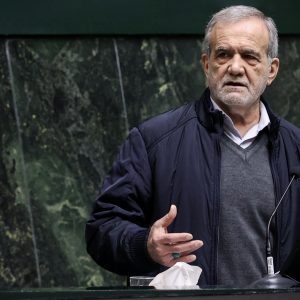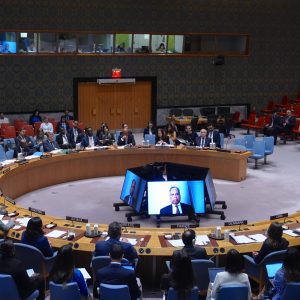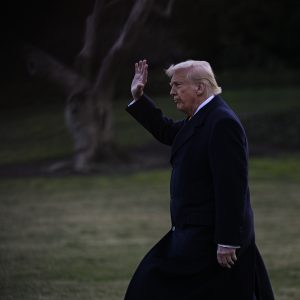Trump’s antisemitism order targets Palestine supporters, faces legal challenges
ISTANBUL (AA) – Legal analysts argue that President Donald Trump’s executive order on combating antisemitism is unlawful.
Hatem Bazian, a professor at the University of California’s Ethnic Studies Department, and Robert McCaw, national government affairs director at the Council on American-Islamic Relations (CAIR), spoke about the potential effects of the order, suggesting it may provoke a stronger reaction from supporters of Palestine.
Signed last week, the order sets up a framework for the potential deportation of students in the US who engage in pro-Palestinian protests.
Bazian explained that the executive order aims to suppress anti-Israel demonstrations that have moved from university campuses to public spaces across the country.
He added that the order seeks to reshape the public perception of Israel, especially following the events of October 7, 2023, when Israel’s prolonged genocidal offensive began, resulting in the deaths of more than 47,000 people. Bazian described the student-led protests as an unexpected challenge for the US in terms of its stance on Israel.
He suggested that the order is meant to intimidate foreign students who participate in these protests, using “antisemitism” as a pretext to stifle dissent.
“The support coming from evangelicals and American Zionist Jewish organizations and donors cemented Trump’s policy decisions on this front and the executive order is a rescue step which in my view is very late to shift public opinion back on Israel after the genocide,” Bazian stated.
He cautioned that the order poses significant risks to international students and non-citizens, as it grants campus administrators expanded powers to take severe actions against pro-Palestinian activities.
However, Bazian emphasized that support for the Palestinian cause in US universities has reached a tipping point.
“Trump’s executive order will witness a greater coalition forming to resist these new restrictions. The immigrants rights movement will coalesce with the pro-Palestine movement in a much deeper way to counter Trump’s orders, which will have a profound impact in the near future.”
While Bazian was unaware of any deportations under the order so far, he mentioned that lawyers, human rights advocates, and civil society groups were closely monitoring the situation and preparing for possible legal challenges.
He reiterated that Trump’s threats would not halt the growing Palestinian activism in the US and around the world.
“We will see a number of cases, and our legal teams and lawyers are organizing to provide the necessary support across the country.
“Part of this is to scare people into silence, but I believe the genocide in Gaza has emboldened activists, and fear is no longer working to make people stop organizing and protesting.
“The clock on Palestine has shifted, and while Trump’s actions are problematic, they will backfire and lead to a stronger and deeper movement.”
– ‘No legal basis’
McCaw from the Council on American-Islamic Relations (CAIR) stated that the executive order directly attacks free speech, seeking to label supporters of Palestine as “antisemitic.”
He argued that the deportation provision is flawed and lacks a legitimate basis.
McCaw stressed that the US is using the narrative of antisemitism to protect Israel’s public image.
“Criticizing Israel’s human rights record is no different than criticizing the policies of any other government. It is not un-American to question US foreign policy, just as it is not anti-Arab to criticize the human rights records of certain Arab nations, nor is it anti-Asian to condemn China’s genocide of Uyghur Muslims.
“Likewise, it is not antisemitic to speak out against Israel’s systematic oppression of Palestinians, its apartheid policies, and its occupation of Palestinian land. In fact, failing to critique such blatant human rights abuses would be both un-American and inhumane.
“The attempt to conflate legitimate criticism of Israeli government actions with antisemitism is a deliberate strategy to stifle free speech and shield a foreign government from accountability.”
McCaw emphasized that enforcing the executive order would be nearly impossible due to its lack of legal foundation. He also pointed out that international students with valid visas cannot be deported simply for expressing their views.
“In reality, this order is designed to create a chilling effect, discouraging students from exercising their First Amendment rights through fear-mongering rather than legitimate legal enforcement,” he said.
While no deportations have occurred under the order so far, McCaw noted that social media and online platforms have seen an increase in complaints and discussions about the issue.
Although CAIR has not yet received formal complaints, McCaw emphasized that the organization is closely monitoring the situation in partnership with universities, civil society organizations, and human rights groups across the US.
He assured that they are prepared to take legal action if necessary.










